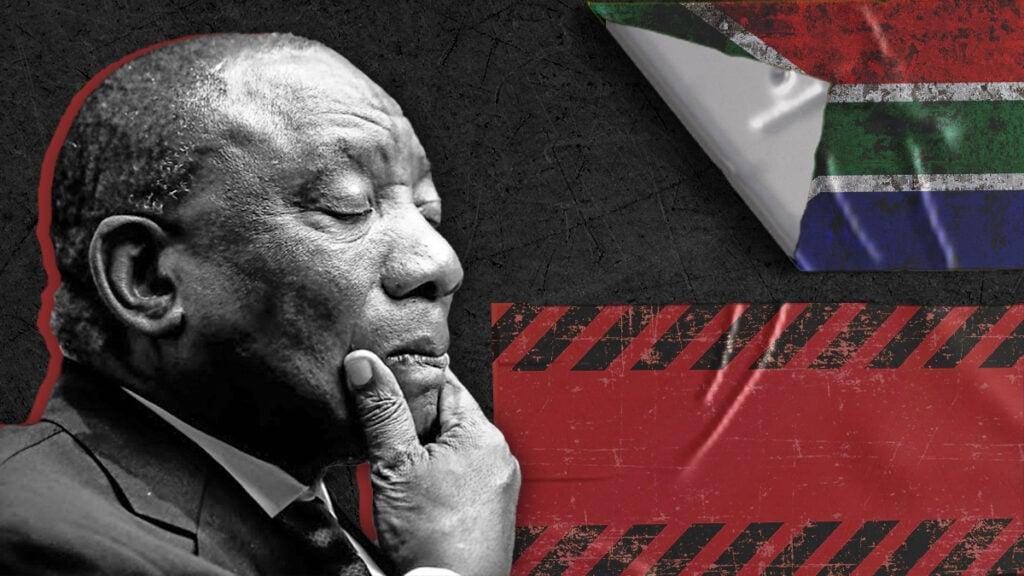Africa-Press – South-Africa. The implementation of tariffs on South African exports to the United States poses a significant risk for the country, with R138 billion in exports and thousands of jobs at stake.
However, a more serious threat comes from the United States’ trade war with China, which threatens nearly R300 billion worth of exports.
This is feedback from Osagyefo Mazwai, an investment strategist at Investec Wealth and Investment International, who outlined the potential impact of a global trade war on South Africa.
Trump unveiled his tariff plan on 2 April, announcing a 10% tariff on all imports into the United States and higher reciprocal rates on the worst offenders, which included South Africa.
The US President claimed that the tariffs on the United States amounted to 60%. In turn, it will implement a “discounted” 30% tariff on the country.
Since then, Trump has walked back his higher reciprocal tariffs, announcing a 90-day delay in their implementation to give countries time to negotiate a better deal with the United States.
The 10% across-the-board tariff remains in place, which Mazwai explained effectively nullifies any benefit from South Africa’s participation in the African Growth and Opportunity Act (AGOA).
Mazwai said it is difficult to predict what will happen next, as the United States’ trade policy is a moving target.
The delay indicates that Trump’s trade war will be more targeted than initially expected, with China being the only country exempt from the delay.
That said, tariffs of 10% still directly result in a reduction in South Africa’s and other countries’ trade balance, Mazwai said.
The combination of the policies will likely increase the costs of goods and services or lower corporate margins. It may also lead to economic stagnation or slowdown around the world, increasing the risks of a global recession.
The negative impact on South Africa could be compounded by the suspension of its membership in AGOA.
While the tariffs already negate any benefit from the agreement, a formal suspension may shake investor confidence in South Africa and trigger a broad selloff of local assets.
The hidden threat
China President Xi Jinping
Mazwai explained that the real threat to South Africa’s economy comes from the United States’ trade war with China.
Over the past two decades, South Africa’s exports have steadily declined as a share of the total to below 9%, translating into around 2.7% of GDP.
A significant share of South Africa’s exports are exempt from US tariffs, as they are classed as critical minerals, Mazwai said, but the real impact on the economy is negligible.
The key piece of the puzzle for South Africa is China, which consumes over 20% of South Africa’s exports, translating to around 5% of GDP.
At the time of writing, US tariffs on China had been increased to 245%, which is very likely to significantly strain the Chinese economy.
This will result in slower economic growth and declining demand for imports, particularly commodities, from countries such as South Africa.
As a result, US tariffs on China are likely to significantly negatively impact South African exports to the world’s second-largest economy.
The European Union consumes 20% of South Africa’s exports and is also vulnerable to Trump’s tariffs, potentially compounding the impact of trade restrictions on China.
Though it was included in the group that saw its tariff reduced to 10% for 90 days, the EU is still very likely to face tariffs on its exports to the US, particularly its vital automotive sector.
Mazwai said if demand for our goods and services in China and the EU falls, that would negatively affect South Africa’s trade balance and the profitability of our domestic companies.
However, Trump’s imposing tariffs on South Africa’s trade competitors could negate the impact on the local economy to a degree.
This means South Africa should not completely lose a relative advantage in some of those particular commodities, as prices will rise.
Much depends on the final outcomes of trade and tariff negotiations, but for now, thanks to the broad-based nature of 10% tariffs, South Africa has not lost any of its relative advantages, Mazwai said.
For More News And Analysis About South-Africa Follow Africa-Press






